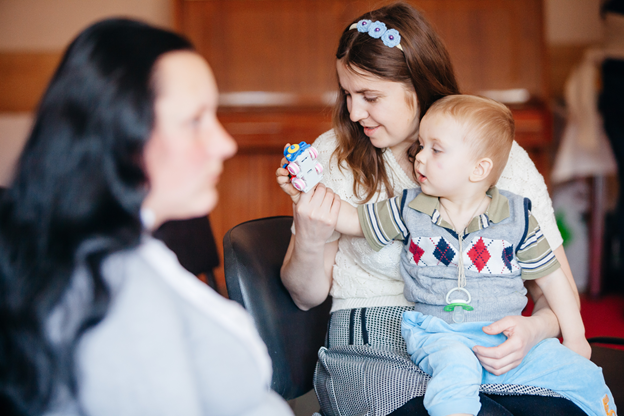According to British research, breastfeeding directly improves the speaking, drawing, and cognitive abilities of children of disadvantaged moms.
If their mothers nursed them for at least three months, the research shows that they perform 8% better on cognitive tests up to the age of seven than those who were bottle-fed.
The children of low-income women benefit from breastfeeding in terms of brain development, and as a result, they begin primary school better equipped than kids who are fed formula.
The results offer substantial new proof that breastfeeding is beneficial for kids. However, although other studies have primarily focused on the connection between early breast milk consumption and physical health, this new article, which is based on an examination of data on over 6,000 British youngsters, is one of the first to demonstrate that it also enhances cognitive abilities.
The study also discovered that mothers with poor levels of education who gave birth on the weekend had a lower likelihood of establishing a breastfeeding relationship with their kids since fewer hospital staff members were available to assist them.
Prof. Emla Fitzsimons of the University College London Center for Longitudinal Studies and Prof. Marcos Vera-Hernandez of the economics department conducted the study. Data on over 6,000 British children born in the UK between 2000 and 2002 who are participants in the Millennium Cohort Study, whose mothers quit school before turning 17, and who had natural or low-risk births, were examined.
Their findings on cognitive development were “statistically significant,” according to Fitzsimons.
They discovered that, for instance, at the age of three, breastfed children scored on average 9.88 points higher than the average for all children, which was 70.4 points, while utilising “expressive language,” in which they are given images of items and asked to name them.
Additionally, when it came to “school readiness”—the mastery of fundamental reading and numeracy skills—baby-fed children aged three scored on average 8.3 points higher than the 22.2 average of all children of that age.
The same disparities persisted when children were re-evaluated at age five and in tests of “pictorial reasoning,” which involves analysing images, and “visuospatial competence,” which measures a child’s capacity to recreate a pattern using patterned squares.
The research’s findings, which apply to moms with relatively modest levels of education, are “remarkable,” according to the study published in the American Economic Journal: Applied Economics. Breastfeeding has a significant impact on a child’s cognitive development. Still, there is conflicting research regarding its implications on non-cognitive abilities, and there is no proof that it has any adverse consequences on a child’s health during this time.
Those who have more money are far more likely to breastfeed than women who have less. The most recent data on the issue come from the UK-wide Infant Feeding Survey of 2010, which indicated that just 30% of women who left full-time education at the age of 17 or 18 had nursed their child for at least four months, compared to 56% of those who left after 18 did.
According to Clare Livingstone, its professional policy adviser and lead on infant feeding, “there is strong and developing data surrounding the health advantages of nursing to the health of the mother and baby, as well as on the baby’s cognitive development.”
Therefore, it is essential that maternity services are consistently appropriately staffed so that midwives and maternity support personnel can offer every mother high-quality help for baby feeding. This is undoubtedly challenging to do, given the present and rising midwife shortage in England and the mounting staffing challenges in the other UK nations.
“Not everyone can or chooses to breastfeed, and socioeconomic and educational variables, as well as other influences, also play a key. Although the situation is complex, it is unquestionably important for women to have access to nursing support.





Comments are closed.